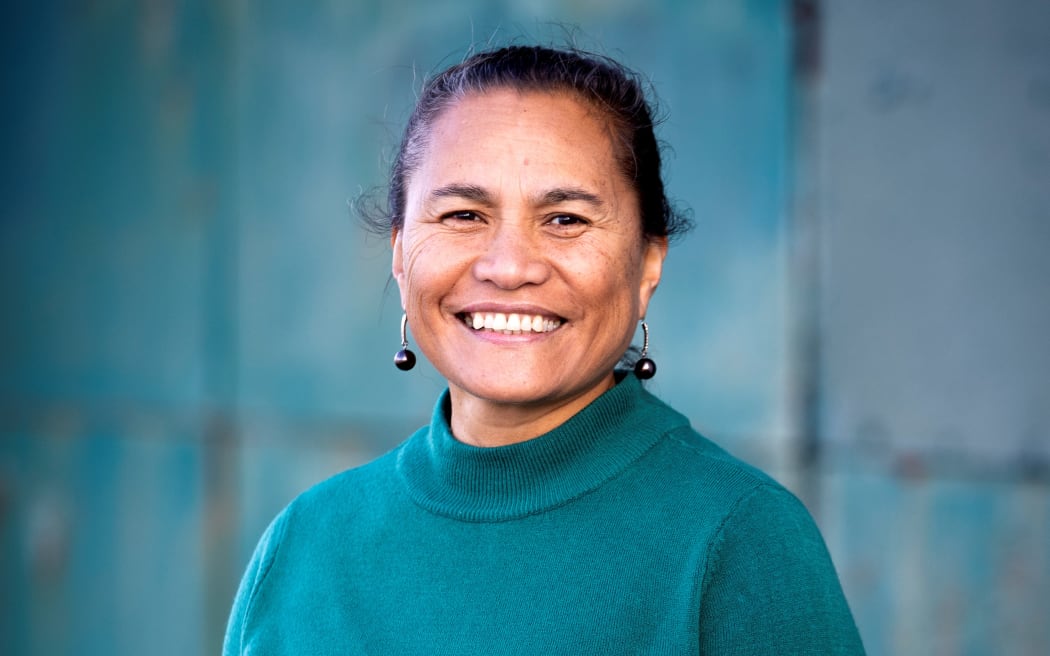Pacific islanders will not include in the NZ government's legislation to close the gender pay gap

21 August, 2023. The New Zealand government's potential legislation to close the gender pay gap in Aotearoa will not include over a million Pacific islanders, tangata whenua, people of colour, and migrants, the Equal Employment Opportunities Commissioner Dr Saunoamaali'i Karanina Sumeo says.
Last week, the government committed to launch a reporting system for businesses in a bid to increase workplace equity and transparency for workers.
The proposed legislation, which has not been drafted yet, would require businesses with more than 250 employees to report their pay gap. After four years, businesses with 100 workers will be brought in, increasing the number of businesses to almost 2700.
Equal Employment Opportunities Commissioner Dr Saunoamaali'i Karanina Sumeo told Pacific Waves it was "not enough" as it should extend beyond large corporations to include small businesses.
A significant amount of people would still miss out in four years when businesses with more than 100 employees begin to report their pay gaps, she said.
"We're still missing out around a million workers. For me, there's no point in having pay transparency legislation that misses out on a million workers. What is the point?"
The government has announced it will also look at including ethnicity in pay gap reporting but in the next phase.
"Māori, Pacific peoples and other ethnic groups often face the compounding impact of both gender and ethnic pay gaps," Workplace Relations and Safety Associate Minister Priyanka Radhakrishnan said.
"Through this next phase of consultation, we'll be able to consider the inclusion of ethnicity before legislation is drafted."
While the government vowed that ethnicity would be considered in the future, for those advocating this change, it was "a huge disappointment" that ethnicity was not covered by the initial review.
"Although they did say they are beginning to look at [ethnic pay gap] because the intention is to include it, in the eyes of our people, Pacific people, it means the bus is leaving without us and that's not right," Saunoamaali'i said.
"We can't just address one element that leads to pay gaps of sexism; we also need to recognise bias in terms of ethnicity and race."
National Council of Women of New Zealand president Suzanne Manning said women experienced dual disadvantages when it came to race.
"Ethnicity must be included in any legislation to make pay gap report mandatory," Manning said.
"A lot of our women are double disadvantaged because of their ethnicity. So, both must be addressed if it is going to be effective; it is a no-brainer according to us."
Respect 'long overdue'
While New Zealand's effort to close the gap is making headways, a Pacific Pay Gap Inquiry found that in 2021, for every dollar earned by a Pākehā man, Pākehā women were paid 89 cents, and for Māori men that drops to 86 cents and Māori women 81 cents.
For a Pacific whānau, men were paid 81 cents and Pacific women only 75 cents, making them the lowest on the pay scale.
The call for better working conditions and equal pay for Pacific workers dates back to the 1970s, led by the Polynesian Panthers, and still continues today.

Equal Employment Opportunities Commissioner Dr Saunoamaali'i Karanina Sumeo Photo: Supplied
Saunoamaali'i said closing pay gaps was long overdue, with fourth-generation Kiwis still waiting for fair pay and respect for Pacific talent.
"For so long, we have this reputation of being the workers...but, we are shareholders in the development of this country."
Pacific peoples were "leaders in business, politics, and communities", she added.
"It's time the rest of New Zealand recognise and respect that."
She urged businesses to observe Aotearoa's future workforce environment and seize the opportunity to work with Pacific peoples as demands from other countries grew.
According to a Pacific Peoples in the Labour Market report, the employment rate grew, with 20,600 more Pacific peoples employed over the year to June 2021.
"It's not like Pacific people don't have the talent; we're talented, we're loyal, we tend to stay for a very long time. For us, it's like family, but they're not progressing up the ladder," Saunoamaali'i said.
"It's a challenge to businesses, here are your values, people that committed their lives to your business, helped you be successful and prosperous; you need to make sure that the fundamentals are right."
'Do not politicise'
Saunoamaali'i acknowledged that the proposed legislation was yet to be drafted and said her office would be actively lobbying the government to expand the scope of pay transparency legislation.
With an election looming, the Human Rights Commission was confident this work would progress, as major political parties had signalled their support for this legislation.
"We have met with the ACT Party, the National Party, the Labour Party, the Greens," she said.
"It was good to hear from the National Party that they will support pay transparency legislation as it's been proposed. We've already seen in the Greens manifesto that they support transparency, and they made it explicit that's going to include ethnicity.
"We don't care who gets into parliament. Please do not politicise this, it is not a political football, we need to do the right thing. It's long overdue."
- RNZI



